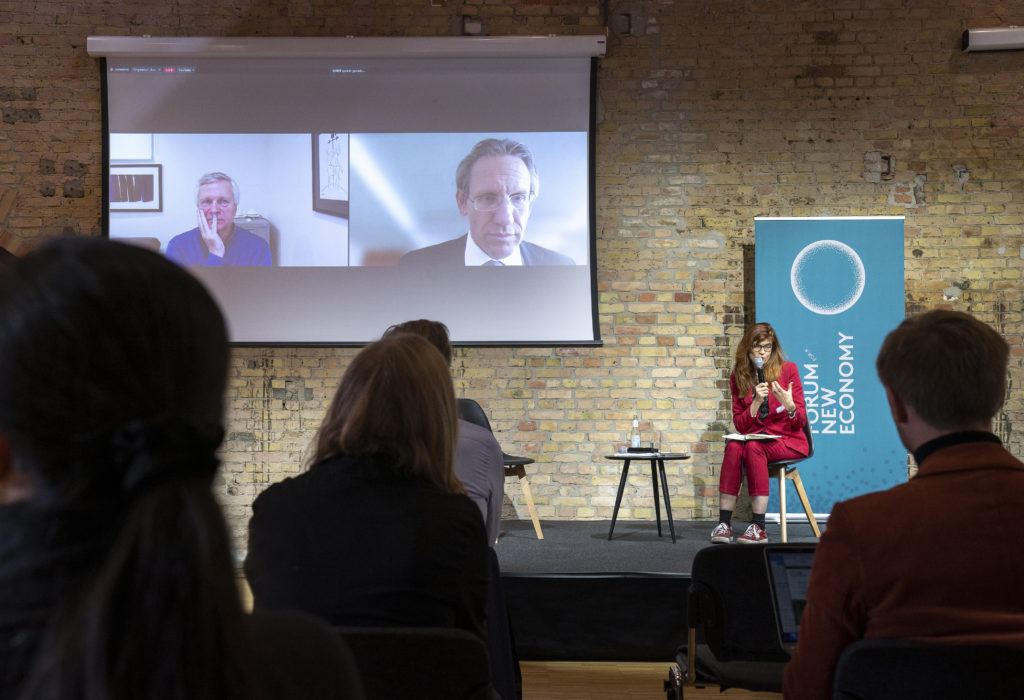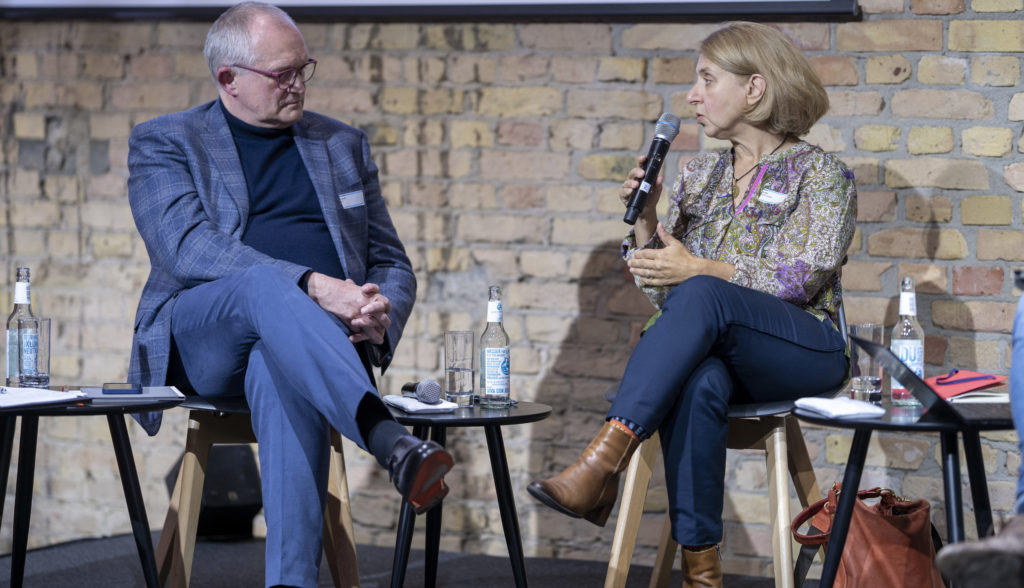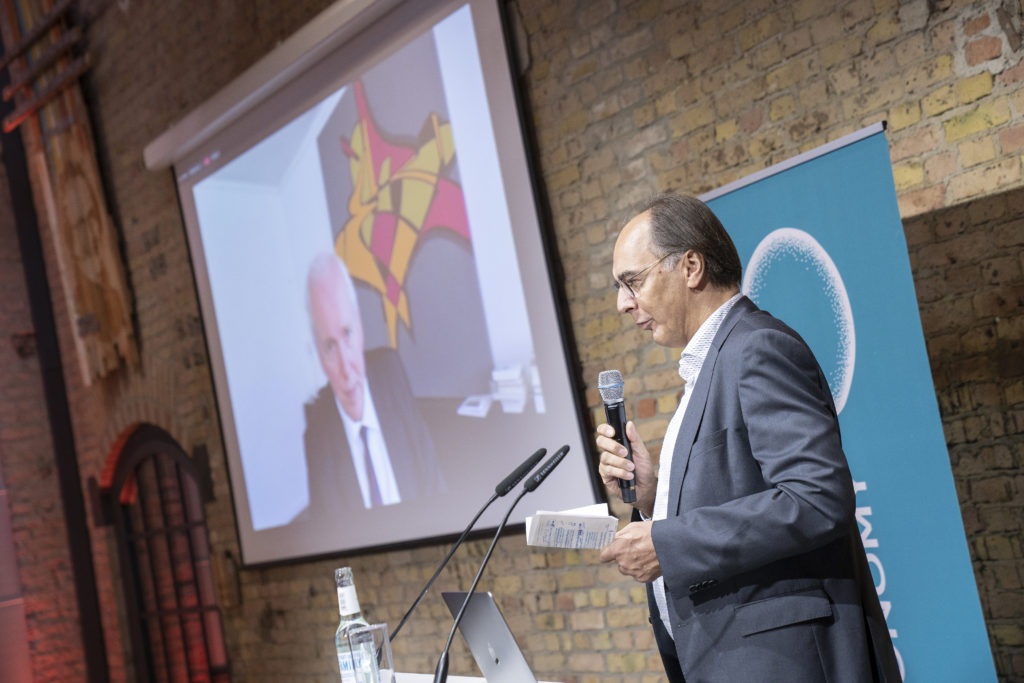INNOVATION LAB
Should We All Work Less?
In most economies, people today work as much as they did decades ago, despite increases in productivity. Why is that the case? We invited leading researchers to our New Paradigm Workshop to discuss the answers.
BY
SONJA HENNENPUBLISHED
11. OCTOBER 2022READING TIME
3 MINAs one of the responses to the increase in bad working conditions, civil organizations and governments around the world have started experimenting with working time reductions and commissioned research on their effects on public health and productivity. At our XI New Paradigm Workshop, we invited leading experts to discuss why Keynes’s famous prediction – that by 2030 we would only work 15 hours on average – did not materialize. What are the impacts of this work overload on public health? And what can we learn from the four-day work week experiments that are being run, for example in Spain?
The panel discussion was started off by Till van Treeck (University Duisburg-Essen), who identified income inequality as a leading factor in explaining why the trend towards shorter working hours has come to an end in the 1980s and Keynes ended up being wrong with his prediction. Research shows that that the average worker in a high inequality country like the US is working about 400 hours more than workers in lower inequality countries, like continental Europe. But why is that the case? Van Treeck illustrated the role of status races in explaining why people work long hours.
“In a world where income inequality increases, a way for people that are less well-off to keep up with consumption is to work more and sacrifice leisure time.”
To achieve shorter working hours, according to van Treeck, the public provision of universal basic services and stronger collective bargaining powers are hence essential.
David Spencer from Leeds University added that capitalist societies have seen a normalization of working hours far in excess of the 15 hours predicted by Keynes, and that there has been little change over the past 30 to 40 years. Combined with severe levels of underemployment and unemployment in many countries, this creates a severe maldistribution of working hours and ultimately a loss of welfare.
As reasons, he identified the unequal distribution of power within society. Whatever productivity increases were realized, the gains did not go to workers. Combined with declining levels of union membership and the erosion of collective bargaining and higher consumption norms, a shortage of working hours could not be implemented. While the momentum for shorter working hours has accelerated recently, Spencer argued that moving from trials to a broader system change will pose a serious scale up problem.
"We have seen a self-selected group of firms participate in the trial. But how do we convince the rest? The state needs to embrace the four-day work week policy as an explicit goal.”
He also iterated the importance of thinking the policy of shorter working hours alongside a broader policy agenda, such as minimum wages.
“There are other issues with working conditions, such as workload, high work intensity and low pay. We have to tackle those alongside the reduction in working hours. It can’t be a silver bullet.”
Joan Sanchis (University of Valencia) proceeded to share insights from the trials on shorter working hours taking place in Valencia and Spain that are currently being shaped into actual public policy packages. The trials, according to Sanchis, were designed to help addressing the low levels of productivity in Spain, the work-related stress and anxiety and also the energy intensive nature of high-pressure, time-intense lifestyles. As learnings to date, he named the importance of creating the right environment for debates and opportunities for civil society to engage with the trial, the focus on a common issue that different agents can rally behind (in the case of Spain – productivity) and the importance of policy makers and businesses taking on a lead role.
But why all the trials and analyses on working hours in the first place? Of course, working less is nice. But are there further arguments, alongside the economic ones, that give power to the recent efforts?
Johanna Nold, from the German Federal Institute for Occupational Safety and Health, shared evidence from their field studies that show that long working hours and high work intensity lead to, among others, sleep disorders, depression, rising risks of heart diseases, as well as higher rates of work accidents. Furthermore, workers report generally lower levels of satisfaction with work and life. Surveys among workers also show a clear preference for shorter working hours that has intensified over the past years. Today, 50 percent of workers would like to work four days or even less. However, in a similar line to David Spencer, she also made clear that a working time reduction in and of itself is not enough if not done right.
“A working time reduction is good for wellbeing, BUT we need to do it sustainably, so that the same work intensity is not simply squeezed into less working days.”



